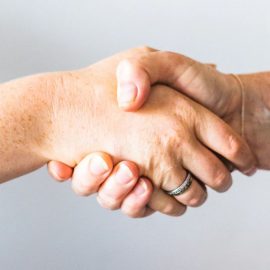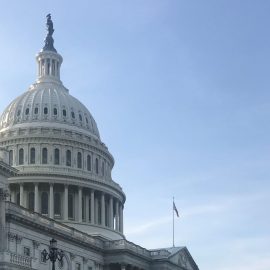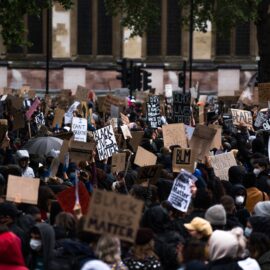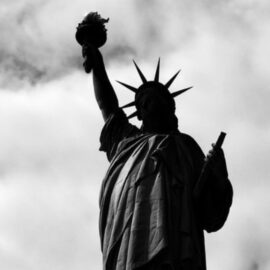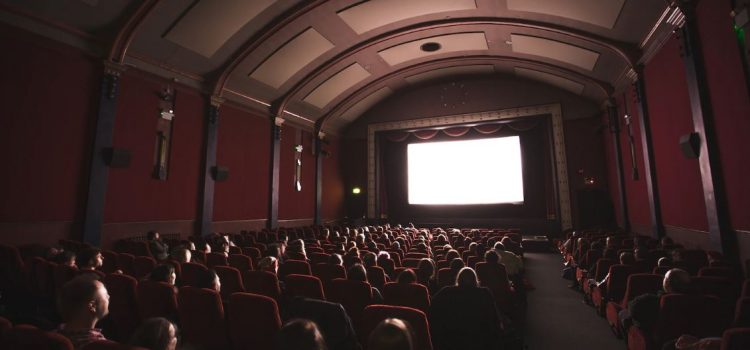
This is a free excerpt from one of Shortform’s Articles. We give you all the important information you need to know about current events and more.
Don't miss out on the whole story. Sign up for a free trial here .
How did scary movies become a mainstay at movie theaters and streaming services? Why do people like horror movies so much?
Horror movies are more popular than ever. Part of this fad is thanks to streaming services making them because they’re safe and cheap. However, our fascination for horror goes much deeper. For many, horror is a way to indulge in primal instincts and embrace morbid curiosity.
We’ll explore why scary movies are popular among studios and audiences alike and examine what makes them so profitable to produce and so enjoyable to watch.
What Our Obsession With Scary Movies Says About Us
Each October as Halloween approaches, films about exorcisms, haunted houses, and serial killers seem to dominate movie theaters and streaming services. Every year, between 30 and 50 new horror films debut at the box office. This year, as many as 20 new horror films will debut in the run-up to Halloween. Here’s why they’re so popular.
Why Do Studios Go All-In on Horror Movies?
It’s not your imagination: Horror movies are more popular than ever, according to experts. Recent surveys suggest that more than half of Americans enjoy “scary media,” such as films, movies, and video games with elements of horror. Some experts attribute the growing number of horror movies to streaming services’ demands for more and more content—and to the fact that these films are a “safer and cheaper option than any other genre.” Horror films have much smaller budgets than superhero or sci-fi features. That leaves ample room for a studio to profit—and to build a profitable franchise. On a companion website, Netflix notes that “there’s plenty of money to be made” in the sequels and reboots for which the horror genre is known.
Have Horror Movies Gotten Better?
In decades past, horror movies were synonymous with sub-par quality: stilted acting, predictable writing, and unconvincing special effects. The genre has relied on such familiar plot points that fans catalog their favorite tropes. These range from the “final girl” to the classic haunted house.
But critics say that modern horror films are increasingly flipping the script on the genre’s best-known narrative devices. Many of these films fulfill tropes to play to expectations and then subvert them.
What Makes a Scary Movie Enjoyable to Watch?
Why do people like horror movies so much? If taste in movies is individual, that’s especially true for horror. Researchers have found that each person has a “sweet spot” for just how frightening a movie is: People enjoy horror films most when they feel scared enough but don’t feel too scared. Experts have also found that we seem to like the feeling of being frightened by a horror movie because of what happens in our brains when we watch the action unfold on the screen. When we feel afraid, our endocrine system releases adrenaline, noradrenaline, and cortisol. These hormones trigger what psychologists call the “fight or flight response.” This automatic physiological reaction helped our ancestors survive by priming the body to either deal with a threat or to make an escape.
Mathias Clasen, director of the Recreational Fear lab at Aarhus University, says there are three types of horror fans, and they each react differently when a movie triggers this stress response. “Adrenaline junkies” get an emotional boost from feeling scared. “White knucklers” take the opposite tack. They challenge themselves to face a scary movie and regulate their anxiety. “Dark copers” do both. They get an emotional boost from experiencing fear and confronting something scary. All types of horror fans respond to the mental and physical stimulation that these movies offer.
Does Horror Have a Unique Appeal for Americans?
It’s also possible that horror is a genre with a uniquely American sensibility. Horror films have long been regarded as a reflection of and a response to our current anxieties—and Americans have plenty to be anxious about. Writer Camille Sojit Pejcha explains that horror responds to “the subconscious thoughts, fears, and obsessions of a society that is, ultimately, built on stolen land.” Horror films illustrate what we fear most in a given moment. And these fears are informed by our history. Pejcha contends that films like Get Out and Parasite (2019) illustrate our misgivings about the structural forces that shape our lives. Writer Carmen Maria Machado describes horror as a “safe danger” and a “controlled descent” into the darkness inside our individual and collective psyche.
Behavioral scientist Coltan Scrivner at the University of Chicago contends that we may have a taste for horror because of an instinct he calls “morbid curiosity.” This instinct involves a fascination with things that are gruesome, violent, or dangerous—and a propensity to want to learn about them from a distance.
A horror movie might give us insight into the darkest parts of human nature. But since we’re experiencing them from a safe physical and psychological distance, the encounter with danger feels manageable.

Want to fast-track your learning? With Shortform, you’ll gain insights you won't find anywhere else .
Here's what you’ll get when you sign up for Shortform :
- Complicated ideas explained in simple and concise ways
- Smart analysis that connects what you’re reading to other key concepts
- Writing with zero fluff because we know how important your time is

